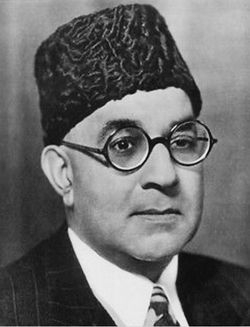The Controversial Role of Liaquat Ali Khan in Establishing the Quota System and Alleged Discrimination Against Migrants in Pakistan

Liaquat Ali Khan, Pakistan’s first Prime Minister (1947–1951), is a towering figure in the country’s early history, revered as Quaid-e-Millat (Leader of the Nation) and Shaheed-e-Millat (Martyr of the Nation). His contributions to consolidating the newly formed state of Pakistan, including laying the groundwork for its administrative and constitutional framework, are widely acknowledged. However, his role in introducing the quota system for civil services in 1948 and allegations of discriminatory practices against migrants (Muhajirs) in job allocations within his ministries have sparked considerable debate. This article critically examines Liaquat Ali Khan’s policies, focusing on the quota system’s origins, its implications for urban Sindh, particularly Karachi, and the contentious claims of discrimination against migrants. The Quota System: Origins and Objectives The quota system in Pakistan was introduced in September 1948 under Liaquat Ali Khan’s administration to ensure...





